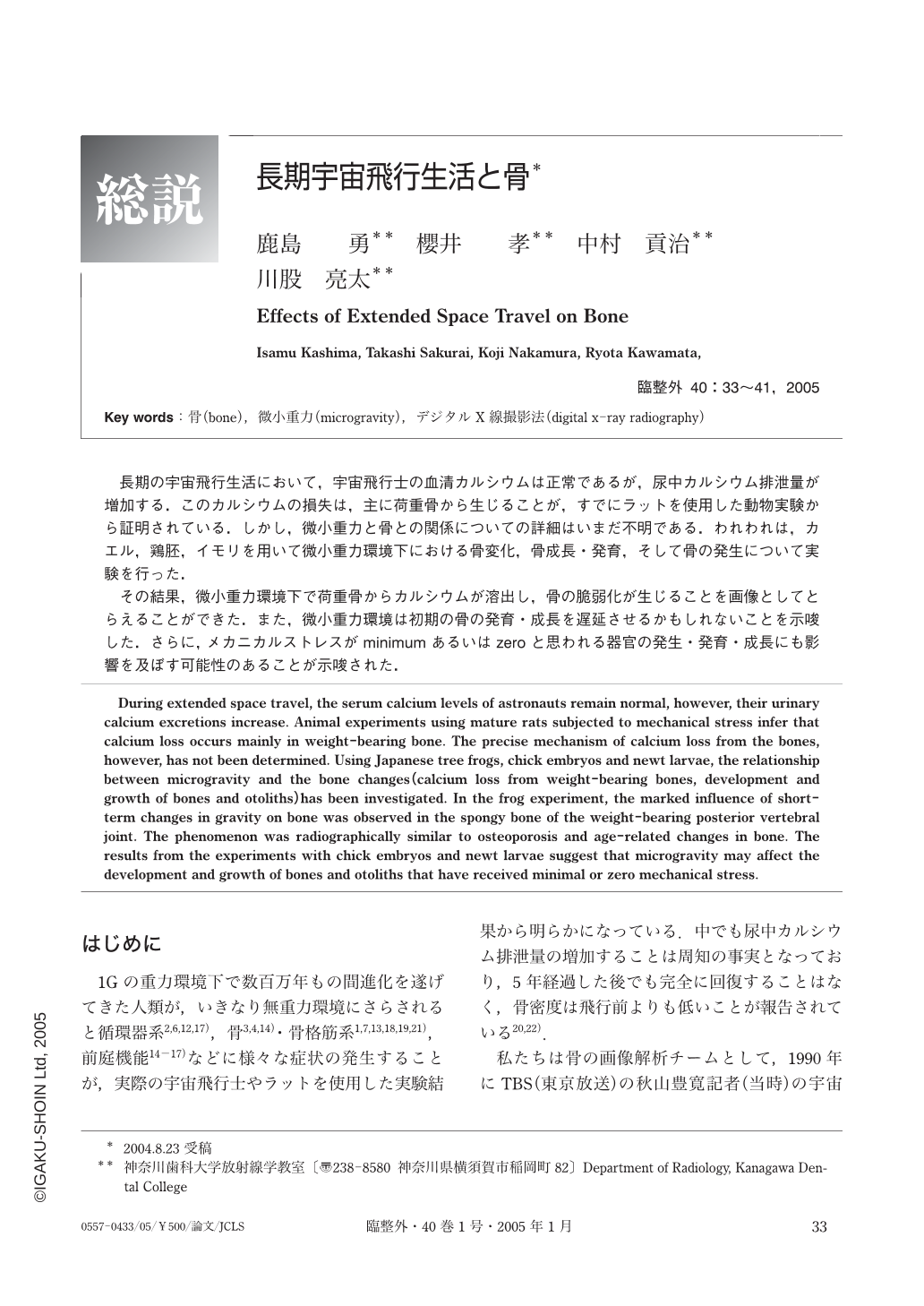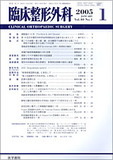Japanese
English
- 有料閲覧
- Abstract 文献概要
- 1ページ目 Look Inside
長期の宇宙飛行生活において,宇宙飛行士の血清カルシウムは正常であるが,尿中カルシウム排泄量が増加する.このカルシウムの損失は,主に荷重骨から生じることが,すでにラットを使用した動物実験から証明されている.しかし,微小重力と骨との関係についての詳細はいまだ不明である.われわれは,カエル,鶏胚,イモリを用いて微小重力環境下における骨変化,骨成長・発育,そして骨の発生について実験を行った.
その結果,微小重力環境下で荷重骨からカルシウムが溶出し,骨の脆弱化が生じることを画像としてとらえることができた.また,微小重力環境は初期の骨の発育・成長を遅延させるかもしれないことを示唆した.さらに,メカニカルストレスがminimumあるいはzeroと思われる器官の発生・発育・成長にも影響を及ぼす可能性のあることが示唆された.
During extended space travel, the serum calcium levels of astronauts remain normal, however, their urinary calcium excretions increase. Animal experiments using mature rats subjected to mechanical stress infer that calcium loss occurs mainly in weight-bearing bone. The precise mechanism of calcium loss from the bones, however, has not been determined. Using Japanese tree frogs, chick embryos and newt larvae, the relationship between microgravity and the bone changes (calcium loss from weight-bearing bones, development and growth of bones and otoliths) has been investigated. In the frog experiment, the marked influence of short-term changes in gravity on bone was observed in the spongy bone of the weight-bearing posterior vertebral joint. The phenomenon was radiographically similar to osteoporosis and age-related changes in bone. The results from the experiments with chick embryos and newt larvae suggest that microgravity may affect the development and growth of bones and otoliths that have received minimal or zero mechanical stress.

Copyright © 2005, Igaku-Shoin Ltd. All rights reserved.


